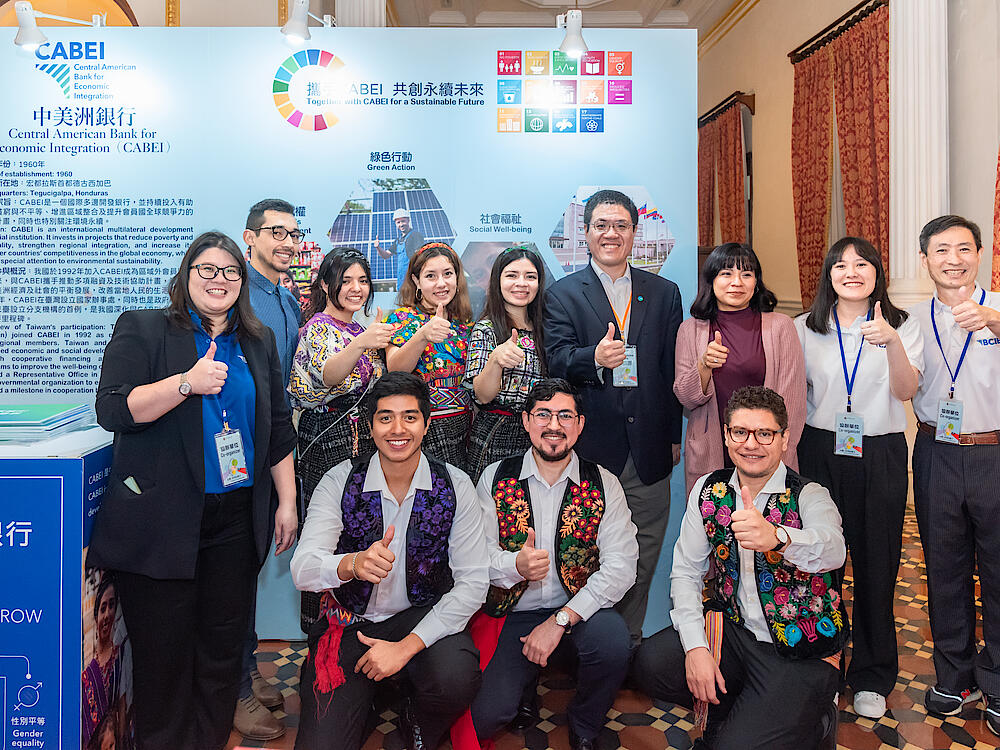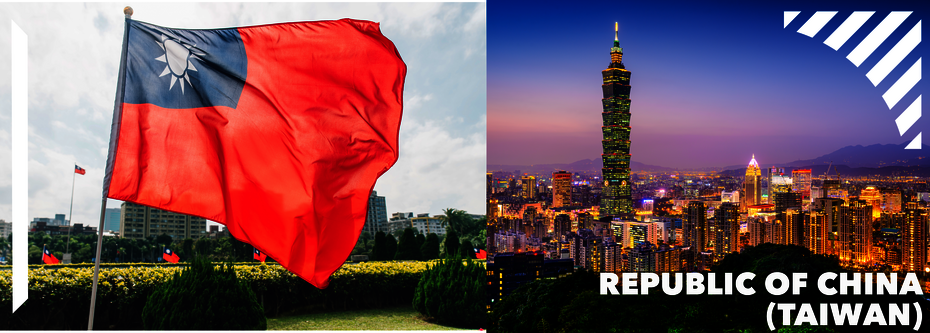Commitment to the well-being of the region.
The Republic of China (Taiwan) joined CABEI in 1992 and is one of the Bank's first non-regional members; its incorporation enabled the Bank to issue and place its first bonds on the international market. At the close of 2021, it is the non-regional member with the highest shareholding (11.4%) with a subscribed capital of USD776.3 million and contributions amounting to USD133.6 million.
In the coordination of development projects, the Republic of China (Taiwan) cooperation for the region focuses on key areas for poverty reduction, such as food security, education, agriculture, Micro, small and medium-sized enterprises, agribusiness, coffee producing sector affected by rust, export promotion and forestry and industrial development.
As a relevant fact, in 2020, thanks to the alliance with its non-regional partner country, CABEI made it's 19th issue in the Taiwan capital market, historically totaling US$ 2.3 billion.
In 2021, CABEI opened its representative office in the Republic of China (Taiwan) located at the Taipei 101 building.
CABEI highlights contribution of its partner, the Republic of China (Taiwan), to the Central American region during international event in Taipei

International Organizations Day-Taiwan’s Helping Hand 2023 was held recently at the historic Taipei Guesthouse.
Taipei, December 4th, 2023 - In order to raise awareness of the contribution of the Republic of China (Taiwan) to the Central American region thanks to its alliance with the Central American Bank for Economic Integration (CABEI), the multilateral organization participated in the exhibition "International Organizations Day-Taiwan's Helping Hand 2023", organized by the Ministry of Foreign Affairs (MOFA).
The Bank had a stand where it provided details to attendees on the extensive collaboration provided by Taiwan on issues such as the fight against poverty, food security, education, the agricultural sector, financing for micro, small and medium-sized enterprise (MSME) programs, agribusiness, the coffee producing sector affected by stem rust, export promotion and forestry and industrial development, and how this has contributed to countries in meeting the Sustainable Development Goals (SDGs).
The event was recently held at the historic Taipei Guesthouse, and attracted more than 500 domestic and international attendees. In addition, 18 international agencies, government entities and organizations, such as World Vegetable Center (WorldVeg), Food and Fertilizer Technology Center (FFTC), European Bank for Reconstruction and Development (EBRD), Asia-Pacific Economic Cooperation (APEC), World Trade Organization (WTO) and others participated in the event.
During the event, CABEI invited Guatemalan students to present Central American dances and songs at the opening and closing ceremonies in order to make the region's culture visible to the public from different parts of the world.


